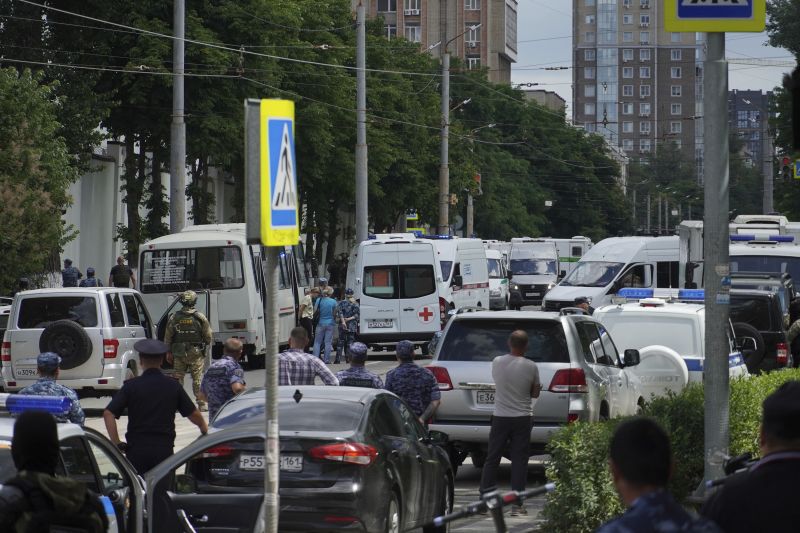 Addressing this crisis can be tackled from multiple angles.
1. Waste Management: Implementing effective waste management systems is a priority. This may involve setting up designated areas for waste disposal, encouraging recycling, composting organic waste, and organizing regular garbage collection and disposal in an environmentally friendly manner. International aid can play a crucial role in setting up these systems.
2. Disease Control: Mosquitoes and flies are carriers of multiple diseases. It’s important to implement insect control measures. These can include spraying insecticides and introducing natural predators. Allocating resources to the health sector, including vaccinations, medications, and health education, can also help prevent the spread of diseases.
3. Sanitation and Hygiene: Improving access to clean water, sanitation facilities, and hygiene education is critical. This includes repairing any damage to sewage systems, ensuring they are properly maintained and providing quality health care for those affected by poor sanitation.
4. Environmental Protection: Protecting the environment is not only key to solving this issue but also to preventing similar future crises. This can include measures such as implementing policies that prevent illegal dumping and encouraging the use of renewable resources.
5. Humanitarian Aid: Lastly, Gaza may need international humanitarian aid to deal with this health crisis. This could include medical supplies, food, and water purification tablets, as well as doctors, nurses, and other trained healthcare professionals.
Addressing this crisis can be tackled from multiple angles.
1. Waste Management: Implementing effective waste management systems is a priority. This may involve setting up designated areas for waste disposal, encouraging recycling, composting organic waste, and organizing regular garbage collection and disposal in an environmentally friendly manner. International aid can play a crucial role in setting up these systems.
2. Disease Control: Mosquitoes and flies are carriers of multiple diseases. It’s important to implement insect control measures. These can include spraying insecticides and introducing natural predators. Allocating resources to the health sector, including vaccinations, medications, and health education, can also help prevent the spread of diseases.
3. Sanitation and Hygiene: Improving access to clean water, sanitation facilities, and hygiene education is critical. This includes repairing any damage to sewage systems, ensuring they are properly maintained and providing quality health care for those affected by poor sanitation.
4. Environmental Protection: Protecting the environment is not only key to solving this issue but also to preventing similar future crises. This can include measures such as implementing policies that prevent illegal dumping and encouraging the use of renewable resources.
5. Humanitarian Aid: Lastly, Gaza may need international humanitarian aid to deal with this health crisis. This could include medical supplies, food, and water purification tablets, as well as doctors, nurses, and other trained healthcare professionals.
Flies, mosquitoes, raw sewage and mountains of garbage threaten to worsen Gaza’s health crisis

 Addressing this crisis can be tackled from multiple angles.
1. Waste Management: Implementing effective waste management systems is a priority. This may involve setting up designated areas for waste disposal, encouraging recycling, composting organic waste, and organizing regular garbage collection and disposal in an environmentally friendly manner. International aid can play a crucial role in setting up these systems.
2. Disease Control: Mosquitoes and flies are carriers of multiple diseases. It’s important to implement insect control measures. These can include spraying insecticides and introducing natural predators. Allocating resources to the health sector, including vaccinations, medications, and health education, can also help prevent the spread of diseases.
3. Sanitation and Hygiene: Improving access to clean water, sanitation facilities, and hygiene education is critical. This includes repairing any damage to sewage systems, ensuring they are properly maintained and providing quality health care for those affected by poor sanitation.
4. Environmental Protection: Protecting the environment is not only key to solving this issue but also to preventing similar future crises. This can include measures such as implementing policies that prevent illegal dumping and encouraging the use of renewable resources.
5. Humanitarian Aid: Lastly, Gaza may need international humanitarian aid to deal with this health crisis. This could include medical supplies, food, and water purification tablets, as well as doctors, nurses, and other trained healthcare professionals.
Addressing this crisis can be tackled from multiple angles.
1. Waste Management: Implementing effective waste management systems is a priority. This may involve setting up designated areas for waste disposal, encouraging recycling, composting organic waste, and organizing regular garbage collection and disposal in an environmentally friendly manner. International aid can play a crucial role in setting up these systems.
2. Disease Control: Mosquitoes and flies are carriers of multiple diseases. It’s important to implement insect control measures. These can include spraying insecticides and introducing natural predators. Allocating resources to the health sector, including vaccinations, medications, and health education, can also help prevent the spread of diseases.
3. Sanitation and Hygiene: Improving access to clean water, sanitation facilities, and hygiene education is critical. This includes repairing any damage to sewage systems, ensuring they are properly maintained and providing quality health care for those affected by poor sanitation.
4. Environmental Protection: Protecting the environment is not only key to solving this issue but also to preventing similar future crises. This can include measures such as implementing policies that prevent illegal dumping and encouraging the use of renewable resources.
5. Humanitarian Aid: Lastly, Gaza may need international humanitarian aid to deal with this health crisis. This could include medical supplies, food, and water purification tablets, as well as doctors, nurses, and other trained healthcare professionals.

